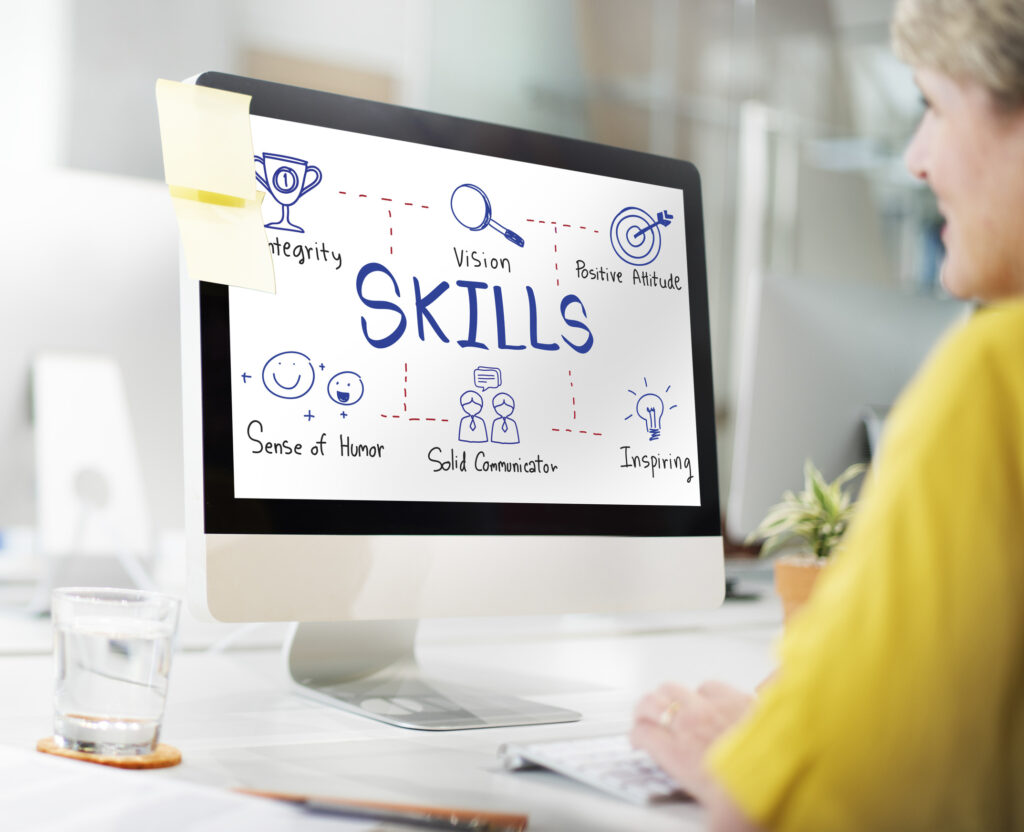
Measuring soft skills: Using interactive functional assessments to gauge interpersonal competencies
Success in any career depends heavily on soft and interpersonal skills. This fact has been known since the early 1900s. As per research published in 1918 by the Carnegie Foundation, 85 per cent of job success comes from having mature soft and people skills. The pandemic and the consequent major shift to hybrid working modes have further heightened the need for a range of interpersonal skills. Organisations now prioritise a thorough evaluation of soft skills to try and predict candidates’ future job performance.
Soft skills are interpersonal and behavioural competencies that determine how individuals manage work, navigate their work environment and engage with colleagues. These skills extend beyond specific tasks, roles and industries. Soft skills include empathy, communication, leadership, conflict resolution, adaptability and teamwork. Soft skills empower employees to express, develop, perform, lead and be inclusive and included. Let’s have a look at some essential skills and their relevance.
Leadership: Good leaders provide inspiration, motivation and guidance. Exemplary leaders ensure a positive and inclusive work environment. They lead by example and set clear expectations for their team. Advancement to higher roles is heavily dependent on leadership skills.
Teamwork: Teamwork is the ability to communicate and work collaboratively within a group towards a common goal. Teamwork is essential at all levels of an organisation. Great teamwork can create a synergy that results in outcomes that are more than the sum of the individual contributions.
Adaptability: That change is the only constant is a universal truth. Employees who adapt to changes, adopt newer technologies and ways of working and move with the times thrive; others get left behind. Adaptability helps employees stay relevant and meet evolving requirements.
Conflict resolution: Conflict is intrinsic to being human and working in a team. Therefore, avoiding conflict at all costs is akin to sweeping things under the carpet. Productive conflict resolution is about easing the stress in the moment and having constructive reactions. Conflict resolution skills allow teams to have open discussions and ensure that all sides are heard.
How do employees’ soft skills benefit organisations? The development of soft skills results in increased productivity by improving task prioritisation, time management and teamwork. With enhanced collaboration and conflict resolution, the team works together effectively, leading to better outcomes. Better communication leads to a clearer understanding of requirements and fewer errors. High-EQ employees are adept at managing their emotions and establishing an environment that helps others do so. Empathising, building a rapport across teams and motivating oneself and others are skills that create an engaged and enthused workforce.
Fostering creative, lateral and critical thinking induces innovation in products and solutions. With innovation as the cornerstone, organisations can adapt to market and economic volatility and stay competitive. Growth and profitability are a given when an organisation has a highly engaged, motivated and innovative workforce. Studies have revealed a 23 per cent increase in profitability when organisations have highly engaged employees. Employee retention improves with increased employee engagement, reducing turnover by 18 per cent.
With employee soft skills having a significant impact on growth, it is imperative for organisations to put in place sound soft skill evaluation methods as part of their recruitment process. Soft skills are difficult to quantify. So, traditionally, how have soft skills been evaluated?
Traditional psychometric tests: Psychometric tests measure cognitive abilities and personality traits to determine the best candidate for a role. The candidate uses a questionnaire attached with an answer booklet to select their responses. The tests were long with complex and elaborated scoring mechanisms to generate one report. A trained Psychologist or Psychiatrist evaluated the traditionally administered psychometric tests. This method incurred high costs and took extensive time due to expert appraisals.
Rubrics: A rubric is a performance assessment scoring guide detailing the evaluation criteria, a rating scale and indicators. By creating rubrics, organisations can select the necessary soft skills for a role, provide descriptions and examples of the soft skills in practice and list a points-based system for evaluation. For instance, if listening is the skill being evaluated, the rubric will have descriptions that distinguish between poor, good and exceptional listening. The rubric helps the appraiser determine the closest match to the candidate’s behaviour or response. Rubrics help in the consistent and fair measurement of soft skills.
Behavioural interview: Behaviour-based interviewing focuses on past experiences that provide examples of candidates displaying specific behaviours, skills and knowledge. This interview technique assumes that actual experiences give a better idea of future potential than hypothetical scenarios. The employer generally bases the interview on a set of situational, behavioural and result-oriented questions. The interviewer asks about a past situation relevant to the role for which the candidate has applied, followed by questions about the specific actions taken by the candidate. The interviewers will consider generic answers or ideal scenario responses as evasive.
Situational interview: In situational interviews, candidates are presented with hypothetical situations and must outline their responses. Situational interviews are an opportunity for interviewers to gauge the candidate’s ability to think quickly, resolve a problem and put forward a structured synopsis. All candidates can be asked to solve the same hypothetical scenario and a comparison would help determine the best fit.
Adaptability interview: Volatile economic and market conditions are a source of constant change for businesses. Adaptability skills are invaluable in every role and an absolute must in some. Adaptability interview questions are a mix of hypothetical scenarios and on-the-job experiences dealing with sudden, unexpected changes. The aim is to measure candidates’ flexibility, presence of mind and fitness for the role.
Digital technologies like AI, big data, augmented reality (AR) and virtual reality (VR) can transform soft skill assessment with improved precision and fairness. These cutting-edge technologies do a more immersive evaluation of traits essential for excellence in a role, providing better outcomes and cost and time reduction.
AI-based psychometric testing:AI-based psychometric testing: Organisations must select the correct test profile to measure the soft skills for a role accurately. AI-based analytic tools can list a role’s required knowledge, skills, abilities and other characteristics (KSAOs) and use the KSAOs to suggest applicable psychometric test profiles. AI-based tests provide more accurate evaluations, are efficient in cost and time and are bias-free assessments. Open-ended response tests can be rated automatically using ML tools by assessing and categorising responses. Automated and intelligent proctoring can catch impersonation, candidate change, unauthorised assistance and blocked cameras. The solutions use image verification and continuous audio, video and image monitoring for supervision. Additional Checks are for tab switching, inactive test windows and screen sharing or mirroring through browser monitoring.
Augmented Reality (AR) and Virtual Reality (VR) assessments: AR and VR assessments utilise an immersive, gamified format. Though conventional paper and pencil exercises are considered reasonably objective and reliable, they are still prone to biases, making it hard to get a definite picture of the candidate’s personality. In VR or AR simulations, participants have been found to respond just as they would in real-life scenarios. This ability to elicit genuine responses makes AR and VR assessments highly suited to measuring soft skills like risk-taking, emotional intelligence and conflict resolution. Stressful and confrontational scenario simulations are instrumental in bringing out people’s ability to handle pressure.
Video interviews: Video interview tools provide time and location flexibility and those that are AI-enabled can rate body language, candidate engagement, language proficiency, communication skills and other soft skills without bias. AI solutions analyse voice tone, eye contact and body language to evaluate the interview. Sentence structure and word choice are appraised and scored. Video interviews conducted in an enhanced VR office environment extend beyond a conversation by allowing the recruiter to check the candidate’s performance within a close replica of the actual setting and context. AI models can predict future performance using data from the candidate’s interactions in the virtual office.
Predictive Analytics: There are vast volumes of hiring, testing, appraisal, training and profile data for employees. Applying AI predictive analytic algorithms to this data will provide patterns, trends and insights regarding hiring and future performance. AI solutions can apply the learning and insights to analyse the evaluation data of potential hires to predict performance in the future, ensuring the hiring of the best candidate for the role.
AI-based evaluation and analytic tools are free from human bias and limits to the algorithm that they are built upon; the models are trained on large, diverse and bias-free datasets. Therefore, hiring appraisals done using these tools will ensure objectivity, diversity and inclusion. AI tools can be adaptive and generate questions based on the candidate’s response, providing a better picture of abilities by raising or lowering the bar according to the answers. Answer-based customisation is more granular and rates at an individual level instead of a fixed one.
Soft skills are the linchpin to employee performance and, consequently, have a far-reaching impact on organisational growth. Technology experts are working strenuously to improve the AI tools for much more complex human behaviour evaluations using facial expressions, body language on a video, voice tone and words used in the audio of a recording or live candidates. A technology-powered, comprehensive and conclusive soft skills evaluation procedure is a must-have in the recruitment process in future.
References: carnegiefoundation.org, mckinsey.com, gallup.com, pwc.at, blog.peoplefirstps.com

